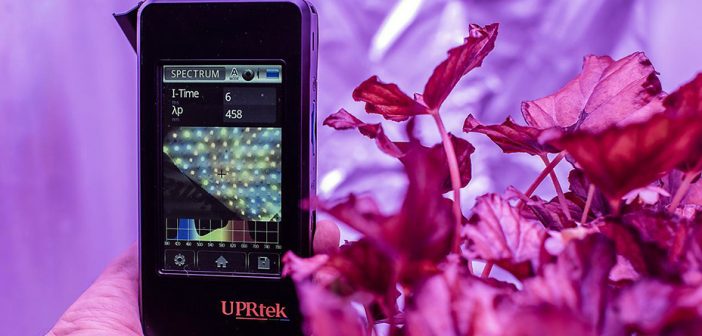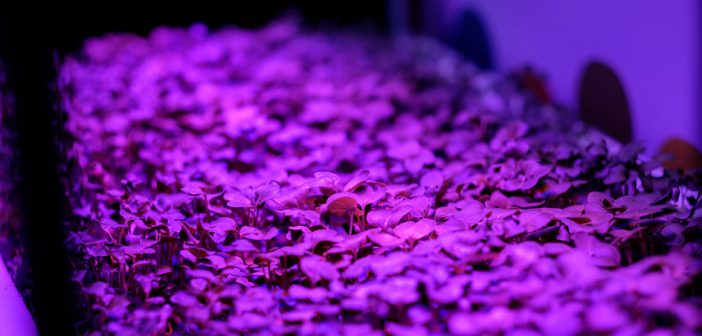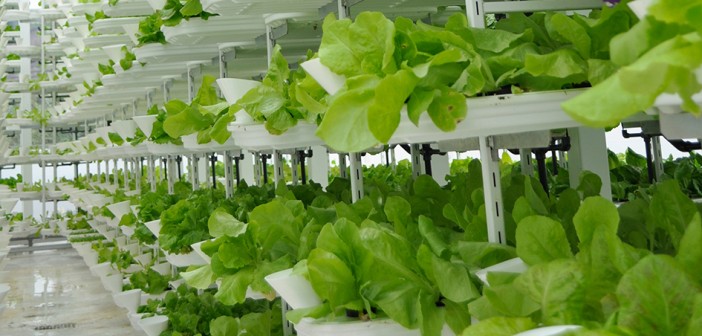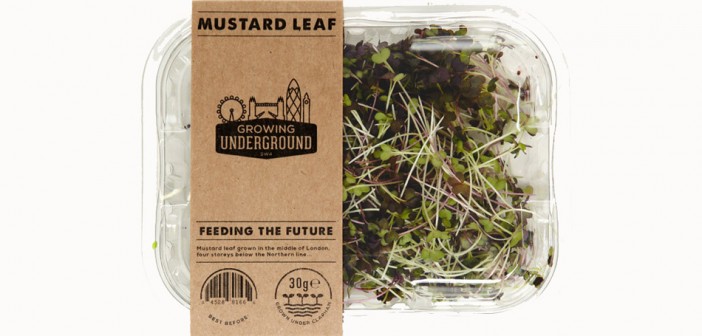A new herb producer, based in Scunthorpe, expects to harvest its first crop within the next week according to reports.
Jones Food Company’s vertical farm is designed to produce 400 to 500 tonnes of crop each year including basil, chives, coriander and dill. It is based in a ‘secret’ warehouse near the Lincolnshire town and the crops are handled automatically by a robot known as Frank. In fact there are only four staff, none of whom actually touch the plants.
It’s claimed that the Scunthorpe facility includes more layers of production than other UK ‘vertical farms’ with a total production area of 5,120 sq. m and 7.6 miles of LED lighting, which have been supplied by GE Current and tested by company founder Dr Paul Challinor at his home. The first crop has reportedly already been sold to an anonymous buyer.
Malcolm Yare, horticulture business development manager for GE Current, said, “There’s nearly no human intervention during the whole production cycle. The lighting is at the heart of the system.”
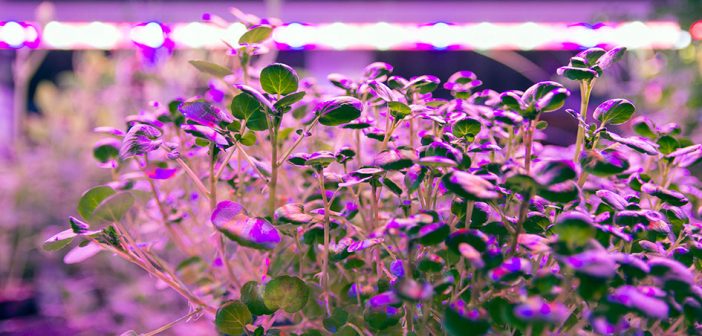
Photo Credit: Jones Food Company
The post First harvest from UK vertical farm appeared first on Hort News.
